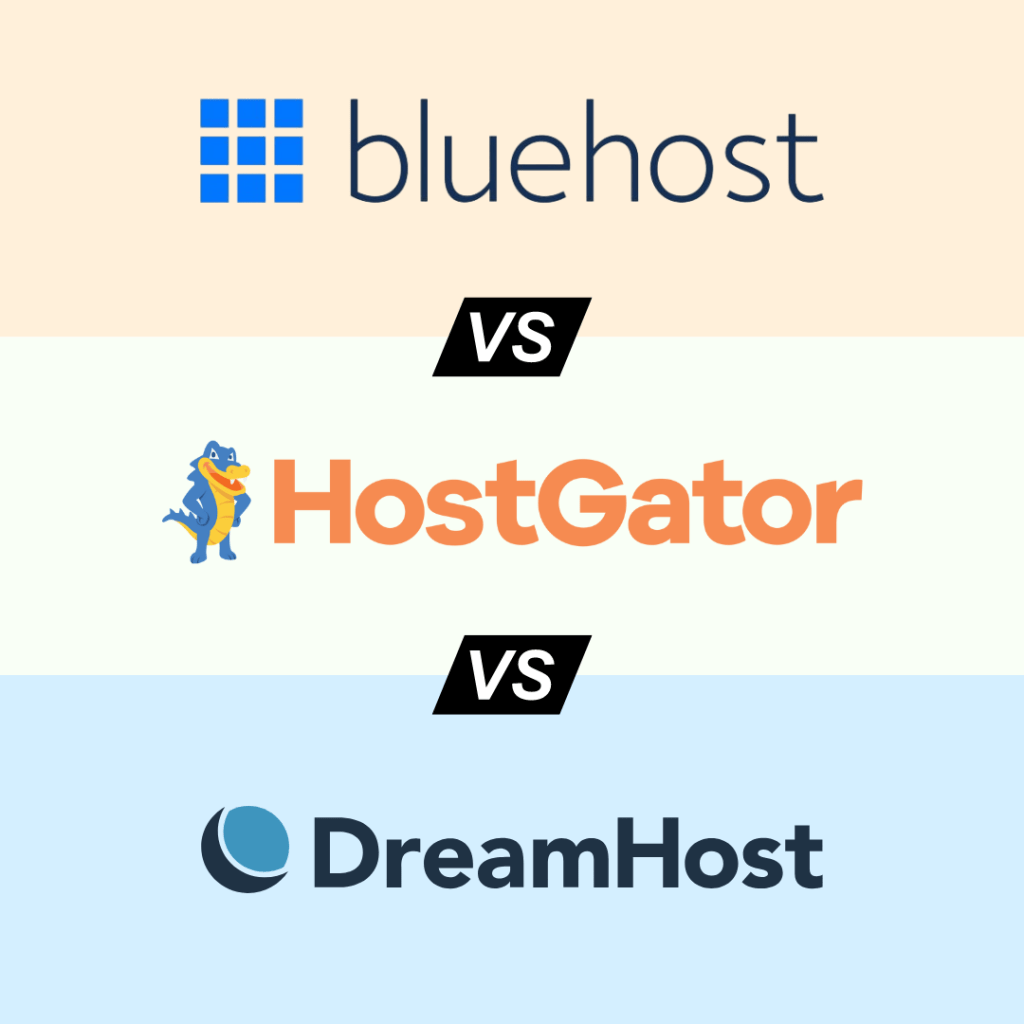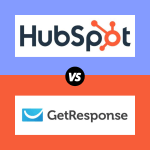When it comes to web hosting, choosing the right provider can make all the difference for your online business. Today, we’re comparing three of the most popular hosting providers: Bluehost, HostGator, and DreamHost. Whether you’re starting a blog, building an e-commerce site, or scaling a business, this guide will help you decide which service best aligns with your business needs, goals, and experience level.
Overview of Each Provider
- Bluehost:
- Known for its strong integration with WordPress, Bluehost is a preferred choice for beginners and small businesses looking to build a WordPress site. Bluehost is also recommended by WordPress.org, which adds credibility for those specifically wanting to use WordPress.
- HostGator:
- HostGator is known for its affordability and user-friendly interface, making it a go-to choice for beginners. With a wide range of hosting options, including shared, VPS, and dedicated hosting, HostGator is versatile enough to accommodate growing businesses.
- DreamHost:
- DreamHost is known for its high performance and reliability. It offers a strong commitment to privacy and security, which appeals to tech-savvy users and those running resource-heavy websites. It’s also one of the few hosts that offer a 97-day money-back guarantee.
Key Features Comparison
| Features | Bluehost | HostGator | DreamHost |
|---|---|---|---|
| Ease of Use | Beginner-friendly, simple interface | Very easy to use, great for beginners | User-friendly but with a slightly steeper learning curve |
| WordPress Integration | Officially recommended by WordPress | Good integration but not recommended by WP | Excellent, with a custom-built WordPress panel |
| Performance | Decent speed, offers Cloudflare CDN | Average speed, sometimes lags under traffic | High performance, SSD storage, faster loading times |
| Uptime Guarantee | 99.9% uptime guarantee | 99.9% uptime guarantee | 100% uptime guarantee |
| Customer Support | 24/7 support via chat, phone, email | 24/7 support via chat, phone, email | 24/7 support via live chat and email only |
| Security Features | Free SSL, CodeGuard backups | Free SSL, SiteLock monitoring | Free SSL, automated backups, domain privacy |
| Pricing | Starts at $2.95/month | Starts at $2.75/month | Starts at $2.59/month |
| Money-Back Guarantee | 30-day money-back guarantee | 45-day money-back guarantee | 97-day money-back guarantee |
Pros and Cons
| Provider | Pros | Cons |
|---|---|---|
| Bluehost | – Officially recommended by WordPress.org | – Upselling during the checkout process |
| – Beginner-friendly with one-click WordPress installation | – Renewal rates are higher | |
| – Free domain for the first year | – Limited to U.S. servers | |
| HostGator | – Most affordable option for beginners | – Average performance during high traffic |
| – Wide range of hosting plans | – Aggressive upselling | |
| – User-friendly cPanel and website builder | – Extra costs for backups and security add-ons | |
| DreamHost | – Best uptime guarantee with a 97-day refund policy | – No phone support, chat and email only |
| – High-performance SSD storage and fast speeds | – Slightly steeper learning curve for beginners | |
| – Emphasis on privacy and security, with free domain privacy protection | – Slightly higher starting price |
Who Should Choose Bluehost?
- Ideal for Beginners: If you’re new to website building and prefer a host that’s simple and integrates perfectly with WordPress, Bluehost is a solid choice.
- Small Businesses: Ideal for small businesses or personal projects that prioritize ease of use and seamless WordPress integration.
- Basic E-commerce Sites: Works well for small e-commerce stores, although it may not scale as effectively as other platforms for very large sites.
Who Should Choose HostGator?
- Budget-Conscious Entrepreneurs: HostGator is one of the most affordable options, making it a good choice for individuals and small businesses on a tight budget.
- Growing Businesses: HostGator offers a wide range of plans, so it’s easy to upgrade as your website grows.
- Simple Websites: Perfect for basic websites, blogs, or small online stores that don’t require high-performance hosting.
Who Should Choose DreamHost?
- Tech-Savvy Users: If you have some technical know-how and need a host that offers performance and reliability, DreamHost is the way to go.
- Privacy-Conscious Users: DreamHost is a great option for those who prioritize privacy and security.
- High-Traffic Websites: Ideal for resource-heavy websites or those expecting high traffic, thanks to its superior performance and SSD storage.
Frequently Asked Questions (FAQ)
1. Which hosting provider is the best for WordPress?
- Bluehost is officially recommended by WordPress.org, making it the best option for WordPress users. However, DreamHost also offers excellent WordPress integration with better performance for high-traffic sites.
2. Is DreamHost worth the extra money?
- If you value performance, uptime, and privacy, DreamHost is worth the investment. It’s especially beneficial for sites expecting high traffic.
3. Can I easily switch from one provider to another?
- Yes, most hosting providers offer migration services. Bluehost, HostGator, and DreamHost all provide assistance for migrating your site from another host.
4. Which provider offers the best value for money?
- HostGator offers the most affordable plans, but DreamHost provides the best long-term value with its superior performance and 97-day money-back guarantee.
5. How important is customer support when choosing a hosting provider?
- Customer support is crucial, especially if you’re a beginner or if your website is mission-critical. All three providers offer 24/7 support, but Bluehost and HostGator provide phone support, whereas DreamHost does not.
Final Thoughts
Choosing between Bluehost, HostGator, and DreamHost depends on your specific needs:
- Bluehost is best for beginners and small businesses focused on WordPress.
- HostGator is ideal for those who need a budget-friendly, easy-to-use platform.
- DreamHost caters to tech-savvy users or those needing superior performance and security.
Consider your business goals, technical experience, and budget when making your decision. Each of these providers has its strengths, so select the one that aligns best with your website’s long-term objectives.



